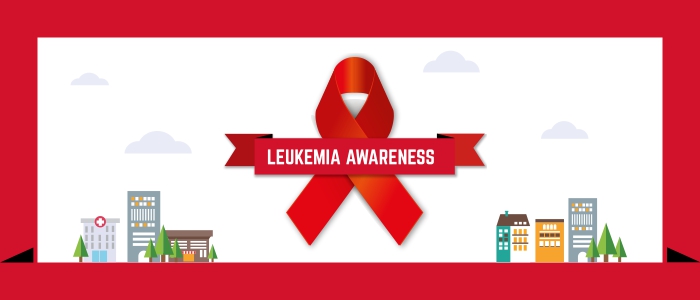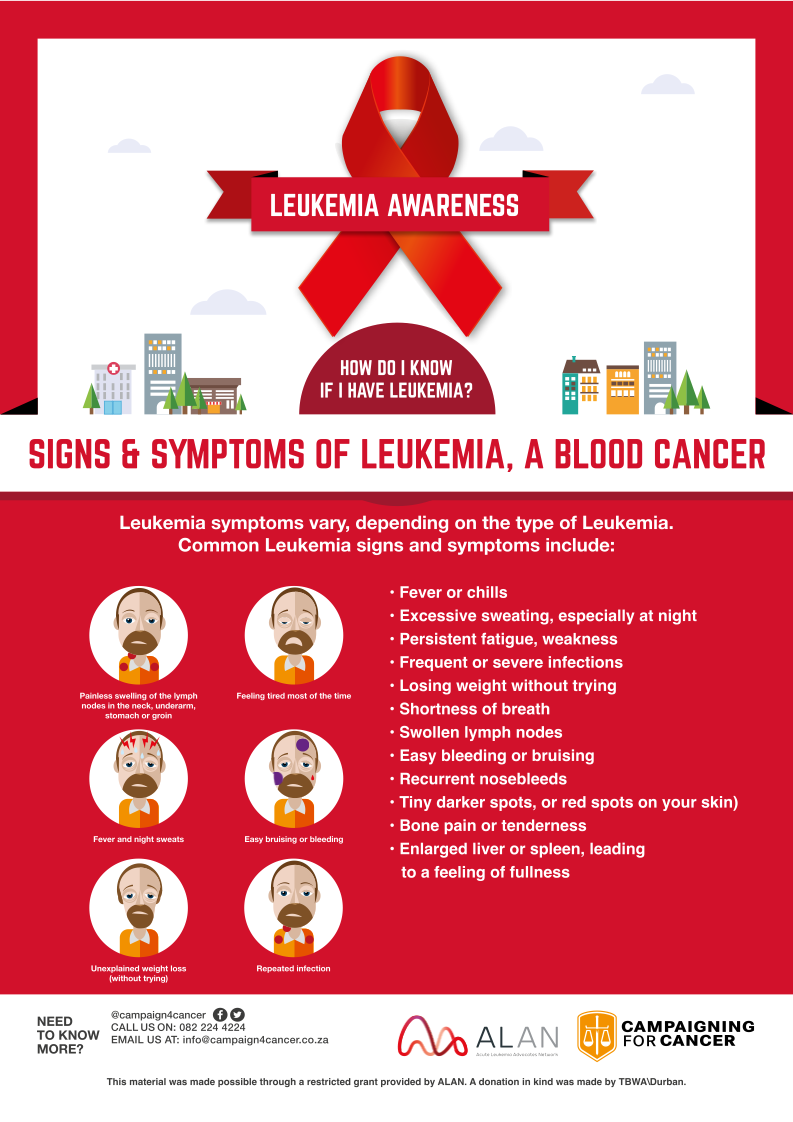
Manage your fear by equipping yourself with knowledge, says Campaigning for Cancer CEO Lauren Pretorius. “Leukaemia used to be a very scary word,” says Lauren Pretorius, CEO of Campaigning for Cancer. “Most people in their forties or older can remember when it was a dangerous cancer. But as with many cancers, the last two decades or so have seen immense strides in treatment being made, and mortality rates are in steady decline. If you know what to look out for and where to get help and medical care, leukaemia need no longer mean a high risk of death.”
It's Leukaemia Day on 4 September 2022, and Campaigning for Cancer plans to launch two informational posters about this cancer to help South Africans understand the disease and manage their risks.
About leukaemia
Leukaemia is a cancer affecting the blood, a cancer of the tissues where your blood is formed, such as the bone marrow and the lymphatic system, causing rapid growth of abnormal blood cells.
One of the reasons leukaemia was so feared is because it’s the most common cancer in children (under 18s). A South African paper that looked at two paediatric oncology units in the Free State and Western Cape found that 25% of the cancers children presented with were leukaemias. And a European paper noted that acute lymphoblastic leukaemia (ALL, the most common form of the disease to affect children) “accounts for 28% of all newly diagnosed cases of cancer in childhood”.
Decline in death rate
But as with many other cancers, the prognosis for children with leukaemia has improved: “The 5-year survival rate for children with ALL has greatly increased over time and is now about 90% overall,” says the American Cancer Society. So there’s lots of reason to be hopeful; with early diagnosis and good treatment, the chances of survival are high.
However, Pretorius points out, “Those stats apply to children in the developed world. Our reality is different, and there are several factors that affect children’s mortality rates.” Early detection of cancer is vital – the later the stage a child is at when they arrive at an oncology unit for treatment, the worse their chances.
“Do they have access to healthcare facilities, where they will get diagnosed and referred for treatment?” asks Pretorius. “Physical access to clinics and hospitals can be difficult, time-consuming and costly, delaying diagnosis, and then paediatric oncology units are relatively rare in the public sector.”
Other factors that affect children’s prognosis include their state of health – a child that is malnourished, or struggling with another disease (TB, perhaps, or HIV) has a higher risk of death.
Knowledge is power
To ensure that all children have the best shot at recovering from leukaemia if they get it, it’s important that adults across South Africa have an understanding of the cancer and its symptoms – parents, extended family, teachers, church youth leaders, sports coaches, any adult in contact with children and young people should be aware of the signs that might mean a child has leukaemia. The sooner red flags are raised the better the child’s chances.
“That’s why Campaigning for Cancer has joined forces with ALAN (Acute Leukaemia Advocates Network) to create and share these two posters summarising important info about leukaemia,” says Pretorius. “We are hoping that they will be widely distributed and displayed, so that empowering and life-saving knowledge is available to everyone.”
ALAN and Campaigning for Cancer urge you to raise awareness on World Leukaemia Day,4 September 2022, by sharing your own leukaemia story with the hashtags #WLD22 or #WorldLeukemiaDay. Share information about this cancer using these hashtags, too – for graphics and other resources, head to https://www.worldleukemiaday.org/world-leukemia-day-resources.
If you or an organisation you work with are looking for material about this cancer or any other cancers, email Campaigning for cancer on admin@campaign4cancer.co.za, or connect via social media on the handle @campaign4cancer.




